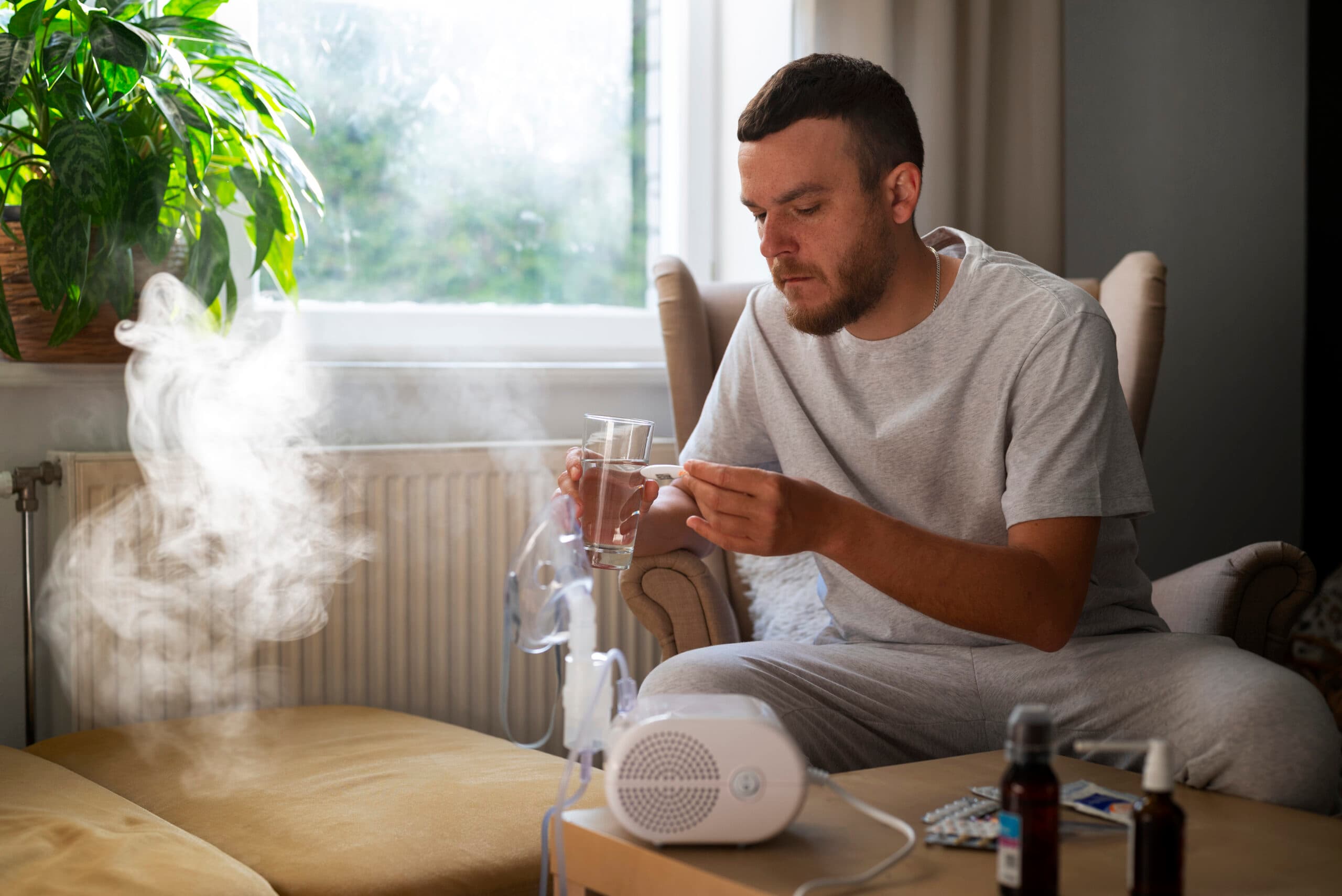

Continuous Positive Airway Pressure (CPAP) and Bilevel Positive Airway Pressure (BiPAP) therapies are considered crucial respiratory devices for the treatment of people suffering from obstructive sleep apnea (OSA) and other breathing-related sleep disorders. These devices are considered game-changers for those who rely on the respiratory device to get appropriate support by delivering consistent airflow. However, like many devices, it has some issues, such as one of the common issues many users struggle with is dryness and discomfort in the airways.
But now people can get rid of this issue by opting for options like a CPAP humidifier or a BiPAP humidifier (depending on the device you are using). Both can drastically improve your comfort and treatment success, which can lead to enhancing your therapy experience and motivating you to get timely treatment. In this guide, we’ll explain when and why to use a humidifier with your CPAP or BiPAP machine, signs that you may need one, and which humidifier-compatible products we recommend at Respiratory Zone, which you can also easily purchase by visiting our store or through our website.
The air provided by CPAP and BiPAP machines is pressurized, but unfortunately, it is not naturally humidified, especially if you are using the traditional model. Breathing this dry, pressurized air for hours can irritate the nasal passages, throat, and mouth, causing you discomfort and leading to an unpleasant therapy experience; this issue can also get persistent if you are someone living in a low-humidity environment. Humidifiers offer a great solution by providing necessary moisture to the air, which prevents:
Modern and advanced machines now come with a Heated humidifier, which makes them capable of being effective at relieving these symptoms and ensuring users can easily adjust to therapy, even if they are someone who has just been diagnosed with a breathing disorder and is new to therapy.

If you are someone who lives in a region that is commonly known for having dry ambient air, such as Balochistan, Northern Pakistan, or takes long flights, then there is a high chance that you might encounter issues like dryness in your upper airway. To prevent this issue, you can opt for a humidifier as it can restore balance, letting you have a comfortable experience of breathing easier throughout the night.
Pro tip: Even if your home doesn’t feel “dry,” air conditioners and heaters often lead to removing indoor humidity, so using a humidifier year-round may still be beneficial for you.
During the winter, indoor heating systems decrease humidity, which often causes issues like a dry nose and throat when the user is receiving sleep therapy. If you notice worsening symptoms in winter, opt for getting a heated humidifier as it can:
At Respiratory Zone, we recommend adding a humidifier module to machines like the ResMed S9 AutoSet CPAP or Philips DreamStation Auto CPAP Machine to enhance your experience and optimize therapy.
Dealing with a dry mouth or an itchy throat is a sign that the airflow from your machine lacks humidity. Mouth breathers get easily impacted with issues like this, even if they use a nasal mask. Which is why it is essential to add a humidifier, as it maintains moisture that ensures your throat and nasal passages remain hydrated through the night.
People with respiratory conditions such as Asthma, Chronic bronchitis, and Allergic rhinitis are often more prone to experience discomfort while using CPAP or BiPAP, as they are already struggling with sensitive airways. There are many advantages of using a humidifier for patients dealing with respiratory issues, as it can soothe inflammation, minimize allergic reactions, and reduce coughing or sneezing during the night.
Humidity Tip: Optimal humidity levels (30–50%) can ease airflow and make therapy tolerable.
Blocked sinuses often make it difficult to exhale against incoming pressure, especially those using a BiPAP machine. To ease this uncomfortable experience, humidified air keeps mucus thin and improves nasal drainage, which:
Machines like the ResMed Series 11 Auto CPAP include intelligent humidification settings that automatically adjust moisture levels (offering the user a great convenience) to prevent both dryness and condensation.
Even if you’re not experiencing severe dryness or irritation, it is still preferable to consider adding a humidifier to enhance your comfort, which also increases therapy adherence. CPAP and BiPAP users who sleep better and feel more refreshed are more likely to use their machines to get therapy regularly, which can significantly alleviate their symptoms.
If you’re investing in your health, you deserve a therapy experience that feels natural and comfortable.
At Respiratory Zone, we recommend heated humidifiers for most users, especially those using machines like the ResMed S10 Auto CPAP or Philips Dreamstation Auto CPAP, which offer integrated or optional heated humidifier flexibility.
Respiratory Zone offers a wide range of top-rated CPAP and BiPAP machines that often come with built-in or attachable humidifiers for convenience:
These models ensure a more comfortable, personalized sleep therapy experience and can be easily purchased from Respiratory Zone, a leading medical equipment supplier in Pakistan.
Yes. Even if you prefer naturally humid climates, indoor environments with AC or heating, there is still a chance that you can encounter issues like dry air.
This issue, known as “rainout,” can occur in colder environments. To avoid this, use heated tubing, like ResMed’s ClimateLineAir, which ensures the air temperature remains stable and prevents condensation buildup.
No. Adding anything to the water chamber can impact the performance and treatment by damaging your machine. Always prefer using distilled water in your humidifier tank.
We offer 24/7 delivery of oxygen concentrators, CPAP/BiPAP machines, and hospital beds.
Emergency delivery available anytime
Quick setup and installation
Get professional advice and support.